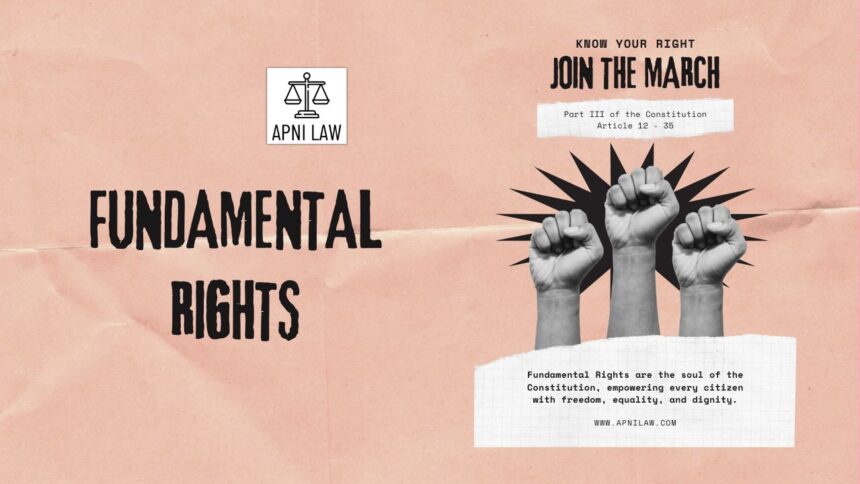Introduction
India is one of the most diverse nations in the world, where millions of people follow different faiths, traditions, and spiritual practices. The framers of the Constitution realized that this diversity could only thrive if every individual had the right to believe in and practice their faith without fear. To protect this principle, Article 25 of the Indian Constitution guarantees the freedom of conscience and the right to profess, practice, and propagate religion.
This Article stands at the heart of India’s secular identity. It ensures that no person is forced to follow a particular religion and that every citizen enjoys equal freedom of belief. At the same time, the state retains the authority to regulate religious practices if they clash with public order, morality, or health. This careful balance makes Article 25 both powerful and practical.
Understanding Freedom of Conscience
The term freedom of conscience means that every individual has the absolute freedom to think, believe, and develop their own faith. Conscience is deeply personal; it cannot be controlled by law or forced by society. This part of Article 25 protects people who choose to follow a religion, as well as those who choose not to follow any faith at all.
For example, an atheist in India enjoys the same constitutional protection as someone who practices Hinduism, Islam, Christianity, Sikhism, or any other faith. By safeguarding the inner voice of individuals, Article 25 ensures that religion remains a matter of choice, not compulsion.
Right to Profess, Practice, and Propagate Religion
Article 25 recognizes three distinct rights: the right to profess, practice, and propagate religion.
To profess religion means openly declaring one’s faith. An individual can identify themselves as belonging to a particular religion without interference.
To practice religion means performing rituals, ceremonies, and acts of worship. For instance, attending prayers in a mosque, offering puja in a temple, or celebrating Christmas at a church all fall under this right.
To propagate religion means sharing and spreading one’s beliefs. This does not imply forced conversions but allows people to express and promote their faith through peaceful means such as preaching or discussion. The Supreme Court clarified in Rev. Stanislaus v. State of Madhya Pradesh (1977) that while individuals can spread their religion, they cannot convert others through coercion, fraud, or undue influence.
Reasonable Restrictions under Article 25
While Article 25 grants broad religious freedom, it is not absolute. The Constitution places restrictions to maintain harmony and public welfare. Religious practices must not harm public order, morality, or health.
For example, the state can ban practices like human sacrifice or untouchability even if someone argues that they are part of religion. In Shirur Mutt Case (1954), the Supreme Court distinguished between essential and non-essential practices of religion. Only essential practices are protected under Article 25. Non-essential or harmful activities can be regulated by the state.
The Article also allows the state to make laws for social welfare and reform. This means that practices like temple entry restrictions on certain communities can be removed, as equality stands above discriminatory traditions.
Landmark Cases Interpreting Article 25
Indian courts have played a vital role in defining the scope of Article 25.
In Shirur Mutt Case (1954), the Court stated that what constitutes an essential religious practice is determined by the faith itself, but the state can regulate secular aspects of religious activities.
In Bijoe Emmanuel v. State of Kerala (1986), Jehovah’s Witness students were expelled for refusing to sing the national anthem due to their faith. The Court held that as long as they stood respectfully, their right to freedom of conscience was protected.
In Rev. Stanislaus Case (1977), the Court ruled that while the right to propagate religion exists, it does not include the right to forcibly convert others.
These cases show that Article 25 is not just theoretical but actively enforced to balance faith with social order.
Significance of Article 25 in a Secular Democracy
Article 25 plays a key role in sustaining India’s secular character. It guarantees that the state does not favor any religion and that citizens enjoy equal rights regardless of their faith. By ensuring that religion remains a personal matter, the Constitution prevents domination by any majority religion and protects minority groups.
This Article also reflects India’s philosophy of “unity in diversity.” Millions of people follow different beliefs, yet the law ensures they coexist peacefully. At a time when religious intolerance often sparks conflict worldwide, Article 25 serves as a shield that protects India’s pluralism.
Challenges in Implementation
Despite its noble intent, Article 25 faces challenges. Debates often arise around issues like conversion, women’s entry into religious institutions, or the line between essential and non-essential practices. For example, the Sabarimala Case (2018) sparked national debate when the Supreme Court allowed women of all ages into the temple, citing constitutional equality over traditional restrictions.
These debates highlight the dynamic nature of Article 25. It constantly evolves through judicial interpretation and social reform.
Frequently Asked Questions
1. Does Article 25 apply only to Indian citizens?
No, Article 25 applies to all persons in India, whether citizens or non-citizens, because freedom of conscience is considered a universal right.
2. Can the state regulate religious practices under Article 25?
Yes, the state can regulate practices if they affect public order, morality, or health, or if they conflict with social reforms such as the abolition of untouchability.
3. Does the right to propagate religion include conversion?
No, the right allows sharing and spreading one’s faith peacefully, but it does not permit conversion by force, fraud, or undue influence.
Conclusion
Article 25 of the Indian Constitution is more than a legal provision; it is a reflection of India’s soul. By guaranteeing freedom of conscience and the right to profess, practice, and propagate religion, it ensures that every person can live according to their beliefs without fear or discrimination. At the same time, it places reasonable restrictions to preserve public harmony and social reform.
This balance of individual liberty and collective welfare has kept India united despite its immense diversity. Article 25 remains a cornerstone of Indian democracy, symbolizing both the freedom of faith and the spirit of secularism.
For any specific query call at +91 – 8569843472








